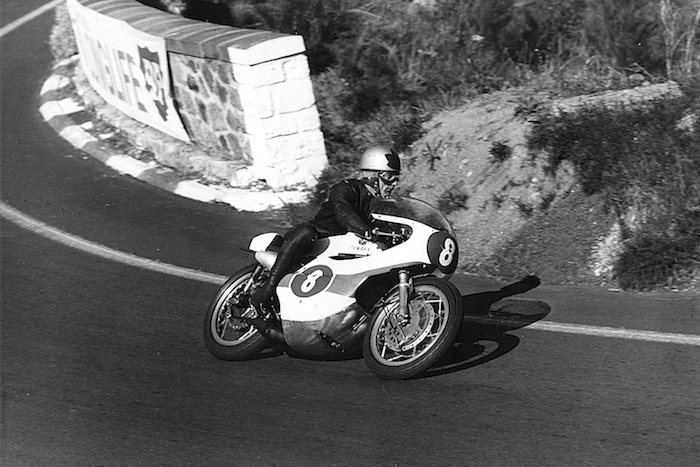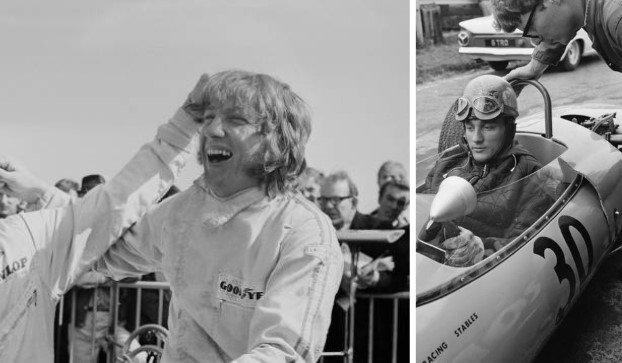Few names in British motorcycle racing history carry the same sense of speed, style, and spirit as Bill Ivy. A man of incredible determination and skill, Bill Ivy became one of the brightest stars of the 1960s racing era — and though his career was tragically short, his legend continues to inspire generations of riders and fans around the world.
Quick Bio
| Category | Details |
|---|---|
| Full Name | William David Ivy |
| Nick Name | Bill Ivy |
| Date of Birth | August 27, 1942 |
| Place of Birth | Maidstone, Kent, England |
| Nationality | British |
| Profession | Grand Prix Motorcycle Racer |
| Years Active | 1960 – 1969 |
| Racing Teams | Yamaha, Jawa |
| Major Titles | 1967 125cc World Champion |
| Date of Death | July 12, 1969 |
| Age at Death | 26 years |
| Notable Rival | Phil Read |
| Racing Style | Aggressive yet precise |
| Legacy | One of Britain’s greatest motorcycle racers |
Early Life and Background

Born in Maidstone, Kent, Bill Ivy grew up surrounded by the post-war fascination with engines and speed. As a young boy, he was captivated by the thrill of racing and the sound of roaring bikes. His mechanical curiosity pushed him to tinker with motorcycles from an early age. Ivy’s beginnings were humble — he started as a garage apprentice and raced on small local circuits, building his reputation step by step. His natural talent was unmistakable, and his rapid rise soon caught the attention of major racing teams.
Journey Into Motorcycle Racing

Bill Ivy’s racing journey began in local club races, where his fierce determination and sharp reflexes set him apart. Unlike many riders who relied on experience alone, Ivy combined natural instinct with technical understanding of machines. By the early 1960s, he was already competing at national level, and by 1965 he had joined the Yamaha Factory Team, marking the beginning of his international racing career. His first major successes came in the 125cc and 250cc Grand Prix circuits, where he began challenging seasoned riders with fearless precision.
Rise to Fame
Ivy’s big breakthrough came in the 1967 season when he dominated the 125cc World Championship riding for Yamaha. His smooth handling, aerodynamic racing posture, and unmatched acceleration on straights made him a true standout. The media dubbed him one of the fastest men on two wheels. His small stature gave him an advantage in minimizing air resistance — something that perfectly complemented his aggressive racing style. Fans loved his charisma and confidence, while his rivals respected his skill and courage.
Racing Style and Technique

What made Bill Ivy such a remarkable motorcycle racer was not only his speed but his control. He mastered the art of cornering — entering tight turns at incredible speeds and exiting with flawless precision. Ivy understood his bike like an engineer, constantly adjusting suspension, carburetors, and tire pressure to optimize performance. He was known for pushing machines beyond their limits, yet always keeping balance. His combination of technical knowledge and fearless attitude set a new standard for professional racing in the 1960s.
Major Achievements and Records
Throughout his short but explosive career, Bill Ivy achieved remarkable milestones. His greatest triumph was winning the 1967 125cc World Championship, securing eight victories that season. In 1968, he continued to dominate in both 125cc and 250cc categories, often competing alongside and against fellow British rider Phil Read. Ivy’s consistency, speed, and adaptability across different circuits made him a formidable competitor. By 1969, he had become one of the sport’s most recognizable figures — a world-class athlete admired internationally.
Partnership with Yamaha
Bill Ivy’s collaboration with Yamaha was a defining chapter in his career. The Japanese manufacturer saw in Ivy the perfect combination of skill and personality to represent their brand in Europe. Together, they formed one of the most successful partnerships in motorcycle racing history. Yamaha’s advanced engineering and Ivy’s precision riding produced a winning formula. However, internal tensions arose in 1968, particularly with teammate Phil Read, over which rider would claim Yamaha’s 250cc title. Despite these challenges, Ivy’s professionalism remained intact, and his performances continued to impress.
Rivalry and Friendship with Phil Read
One of the most talked-about aspects of Bill Ivy’s career was his rivalry with Phil Read. Both were top Yamaha riders, both British, and both fiercely competitive. Initially, their relationship was friendly, but as the stakes grew higher, tensions emerged. The 1968 World Championship became a battleground between the two. Yamaha had planned for Ivy to win the 250cc title while Read focused on 125cc, but Read ignored team orders and competed in both categories — ultimately winning both championships. The incident created lasting controversy, yet it also showcased Ivy’s grace under pressure and commitment to fair play.
Transition to the Jawa Team
After parting ways with Yamaha, Bill Ivy joined the Jawa factory team in 1969, aiming to compete in the 350cc World Championship. Jawa’s machines were powerful but difficult to handle, and Ivy saw this as an opportunity to prove his adaptability. He dedicated himself to testing and improving the bikes, determined to achieve success even with limited resources. His technical insight contributed greatly to the team’s development, showing Ivy’s versatility not only as a racer but also as a mechanical expert.
Tragic Accident and Death
Tragedy struck on July 12, 1969, during practice for the East German Grand Prix at Sachsenring. Bill Ivy’s motorcycle engine seized while traveling at high speed, throwing him from the bike. Despite wearing protective gear, the impact was fatal. The racing world was stunned — one of its brightest stars was gone at just 26 years old. His death prompted renewed discussions on safety standards and mechanical reliability in racing. To this day, fans and fellow riders remember Ivy not for the way he died, but for the way he lived — fast, fearless, and full of passion.
Legacy and Impact on Motorcycle Racing
Though his career lasted less than a decade, Bill Ivy left an enduring legacy in the world of motorcycle racing. He is often credited with influencing a generation of British and European riders who admired his aggressive yet controlled technique. Ivy’s name continues to appear in motorsport documentaries, biographies, and historical rankings. His dedication and courage helped shape modern racing’s emphasis on precision engineering and rider safety.
Personality Beyond the Track
Off the circuit, Bill Ivy was known for his charm, humility, and love of music — he was also an accomplished singer and occasionally recorded songs during his free time. Friends described him as witty, friendly, and full of life. His ability to balance fame with a down-to-earth attitude made him a beloved figure not just in racing, but also in British popular culture of the 1960s. Ivy’s blend of style and substance made him a true icon of his time.
Remembering Bill Ivy Today
Even decades later, the spirit of Bill Ivy continues to resonate among racing fans. Annual events and tributes in the UK and Europe celebrate his contributions to the sport. Enthusiasts still restore and display his racing bikes, keeping his memory alive in classic motorcycle shows. His story reminds modern riders that true greatness is not measured by time, but by the impact one leaves behind.
Conclusion
The life of Bill Ivy may have been short, but his legacy roars on like the engines he once mastered. His journey from a small-town boy in Kent to a world champion exemplifies determination, bravery, and passion. Ivy’s story remains a vital chapter in the golden era of motorcycle racing — one that continues to inspire riders to chase their dreams with the same fearless heart.
FAQs
Who was Bill Ivy?
Bill Ivy was a British Grand Prix motorcycle racer who won the 1967 125cc World Championship and became one of the sport’s leading figures of the 1960s.
What made Bill Ivy famous?
He was renowned for his incredible speed, technical skill, and championship win with the Yamaha factory team.
When did Bill Ivy die?
He tragically died in 1969 during practice for the East German Grand Prix at Sachsenring.
Which team did Bill Ivy race for?
He raced for Yamaha and later Jawa.
What is Bill Ivy remembered for?
For his fearless racing style, sportsmanship, and significant influence on modern motorcycle racing.
For More Latest Update doodlesmagazine


